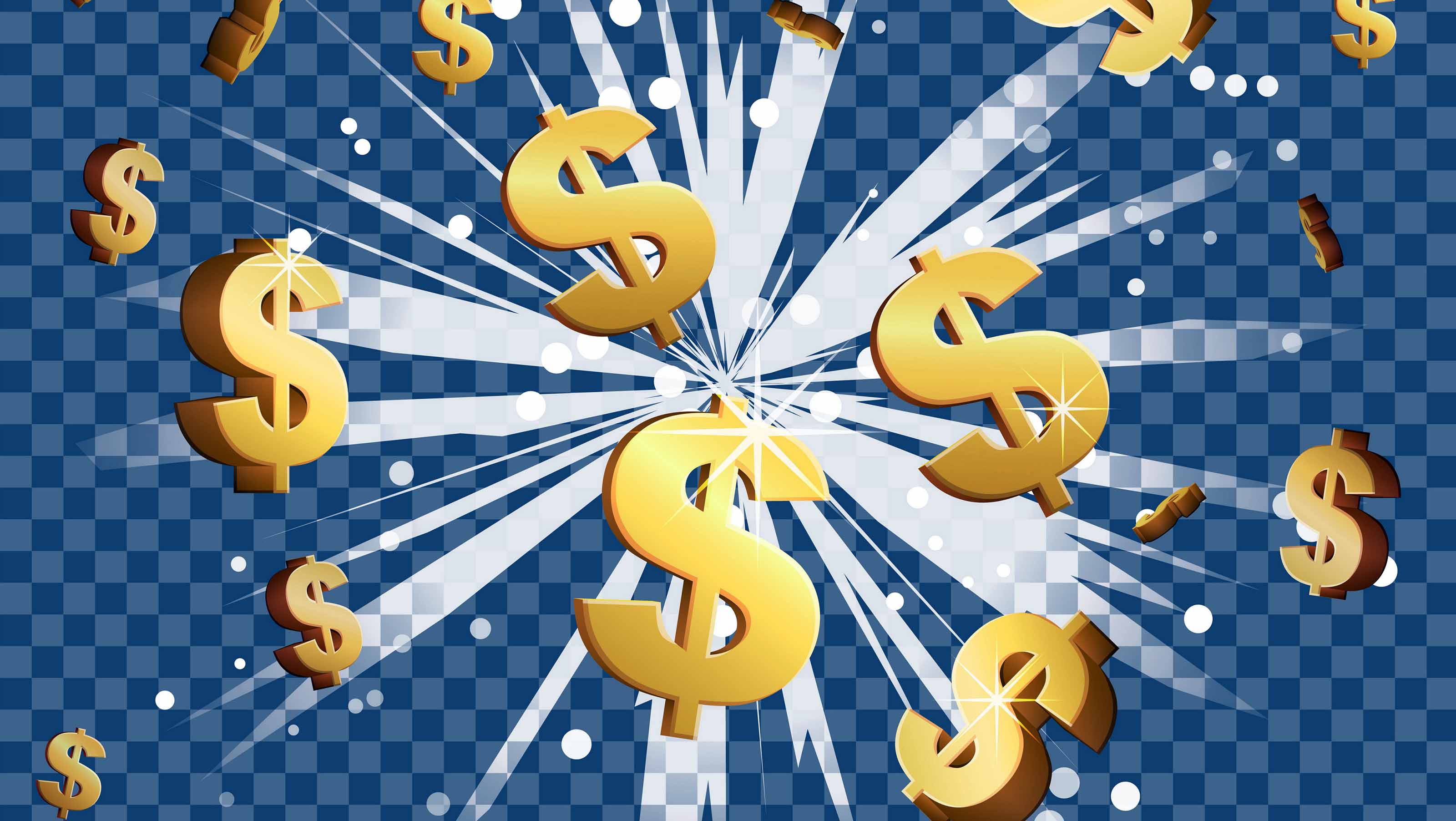Market Timing: The Importance of Doing Nothing
Investors, as a whole, actually earn less than the funds that they invest in. Here’s how to avoid that fate.


Profit and prosper with the best of Kiplinger's advice on investing, taxes, retirement, personal finance and much more. Delivered daily. Enter your email in the box and click Sign Me Up.
You are now subscribed
Your newsletter sign-up was successful
Want to add more newsletters?

Delivered daily
Kiplinger Today
Profit and prosper with the best of Kiplinger's advice on investing, taxes, retirement, personal finance and much more delivered daily. Smart money moves start here.

Sent five days a week
Kiplinger A Step Ahead
Get practical help to make better financial decisions in your everyday life, from spending to savings on top deals.

Delivered daily
Kiplinger Closing Bell
Get today's biggest financial and investing headlines delivered to your inbox every day the U.S. stock market is open.

Sent twice a week
Kiplinger Adviser Intel
Financial pros across the country share best practices and fresh tactics to preserve and grow your wealth.

Delivered weekly
Kiplinger Tax Tips
Trim your federal and state tax bills with practical tax-planning and tax-cutting strategies.

Sent twice a week
Kiplinger Retirement Tips
Your twice-a-week guide to planning and enjoying a financially secure and richly rewarding retirement

Sent bimonthly.
Kiplinger Adviser Angle
Insights for advisers, wealth managers and other financial professionals.

Sent twice a week
Kiplinger Investing Weekly
Your twice-a-week roundup of promising stocks, funds, companies and industries you should consider, ones you should avoid, and why.

Sent weekly for six weeks
Kiplinger Invest for Retirement
Your step-by-step six-part series on how to invest for retirement, from devising a successful strategy to exactly which investments to choose.
The headlines scream at us relentlessly from our computers and phones, seemingly begging us to engage in market timing. "This market looks just like 1998," says one. "JP Morgan's market guru says his 'once in a decade' trade is upon us," blares another.
The advice grows more strident when the market turns volatile.
It's remarkably difficult to pick a good mix of stock and bond funds – then avoid making big changes to it. But you should. In fact, on top of my to-do list, so I can't miss it, I have six words typed in big, bold letters:
From just $107.88 $24.99 for Kiplinger Personal Finance
Become a smarter, better informed investor. Subscribe from just $107.88 $24.99, plus get up to 4 Special Issues

Sign up for Kiplinger’s Free Newsletters
Profit and prosper with the best of expert advice on investing, taxes, retirement, personal finance and more - straight to your e-mail.
Profit and prosper with the best of expert advice - straight to your e-mail.
"Don't just do something; stand there."
The Perils of Lousy Market Timing
"Timing is the bane of investors everywhere," says Russel Kinnel, director of manager research at Morningstar. "Bad timing can cost you dearly. Everyone from new investors to administrators of giant pension funds and fund portfolio managers makes these errors."
Want proof? Kinnel and his colleagues calculate "investor returns" for mutual funds and exchange-traded funds (ETFs). In essence, their research illustrates the drag of lousy market timing by showing how the average dollar invested in funds did versus the total return of the funds.
The average dollar earned 45 basis points less on an annual basis over five 10-year periods through 2018. (A basis point is one one-hundredth of a percentage point.) Investors in stock funds lost 56 basis points to bad timing, investors in bond funds lost 55 basis points and investors in alternative funds lost 1.44 percentage points annually, according to the Morningstar study.
That investors lag bond-fund returns almost as badly as they lag stock-fund returns is surprising, given that bond funds typically are less volatile than stock funds. But also note the relative size of the gap. Stock funds averaged 6.8% annual gains versus 3.4% for bond funds, which means market timing took a larger bite out of bond returns as a percentage.
Alternative funds, meanwhile, are extremely complex investments that often produce low returns and have low correlations with both stocks and bonds. Those factors make them difficult for investors to understand – and easy to dump when they underperform, Kinnel says.
Then there are allocation funds. Investors in allocation funds actually topped the performance of the funds they invested in, by 22 basis points. Why? Because many allocation funds are target-date retirement funds. These funds are designed for investors to hold over an investment lifetime. They're a mix of stocks and bonds that gradually becomes more conservative over time. Plus, the overwhelming majority of target-date assets are in 401(k)s and other work-based retirement vehicles that make it easy for employees to contribute monthly using dollar cost averaging.
How Can You Avoid Bad Market Timing?
Morningstar's study offers some help – in addition to the admonition not to trade too much.
It turns out that the more volatile a fund is, the more likely investors are to buy and sell it at the worst times. That makes sense. It's far more difficult to hold a fund that's losing a ton in a bear market than one that's taking a hit but isn't down as much as the overall market.
Kinnel breaks stock funds into quintiles from most volatile to least volatile. Investors in the most-volatile quintile lagged their funds by 1.86 percentage points per year. Ouch! Investors in the least-volatile quintile lagged by a mere 19 basis points.
"Boring funds are working well for people as they don't inspire fear or greed," Kinnel says.
Performance by expense ratio is similar to volatility. The average dollar in the cheapest funds lost less to market timing that those in costlier funds. Investors in the lowest-cost quintile of stock funds trailed their funds by 1.1 percentage points per year. Investors in the highest-cost quintile of stock funds lagged by 2.2 percentage points annually.
Kinnel notes that lower-cost funds tend to do much better than higher-cost funds. "Costs are good predictors of performance, so this makes intuitive sense," he says in the study.
"A second factor in good investor returns might be that low-cost funds attract savvier planners and individual investors who make better use of their funds."
Kinnel has been performing these studies for many years now. What's encouraging is that the gap between investor returns and fund returns has slowly but surely been narrowing over the years.
Perhaps we are getting a little smarter.
But we've also been in a very long bull market. It's going to be much more difficult to stay invested the next time the market tanks.
"When markets lurch, investors do worse because they make timing mistakes," Kinnel says. "Investors large and small tend to sell after downturns only to buy back in after rallies."
Being mindful of this could steady your hand and help you avoid that fate.
Steve Goldberg is an investment adviser in the Washington, D.C., area.
Profit and prosper with the best of Kiplinger's advice on investing, taxes, retirement, personal finance and much more. Delivered daily. Enter your email in the box and click Sign Me Up.

-
 Quiz: Do You Know How to Avoid the "Medigap Trap?"
Quiz: Do You Know How to Avoid the "Medigap Trap?"Quiz Test your basic knowledge of the "Medigap Trap" in our quick quiz.
-
 5 Top Tax-Efficient Mutual Funds for Smarter Investing
5 Top Tax-Efficient Mutual Funds for Smarter InvestingMutual funds are many things, but "tax-friendly" usually isn't one of them. These are the exceptions.
-
 AI Sparks Existential Crisis for Software Stocks
AI Sparks Existential Crisis for Software StocksThe Kiplinger Letter Fears that SaaS subscription software could be rendered obsolete by artificial intelligence make investors jittery.
-
 ESG Gives Russia the Cold Shoulder, Too
ESG Gives Russia the Cold Shoulder, TooESG MSCI jumped on the Russia dogpile this week, reducing the country's ESG government rating to the lowest possible level.
-
 New Ways to Invest in Bitcoin
New Ways to Invest in BitcoinBecoming an Investor ProShares Bitcoin Strategy and other ETFs offer an easier way to gain bitcoin exposure than buying the actual cryptocurrency.
-
 How to Cash In on Sports Gambling
How to Cash In on Sports GamblingBecoming an Investor Some 27 states have launched sports-betting markets, 11 of them online. Another five have passed laws to do so.
-
 3 New-Investor Myths That Need Busting
3 New-Investor Myths That Need BustingBecoming an Investor Preconceived notions that new investors are uninformed risk-takers are misguided. Forget games and cynicism; they need support and guidance.
-
 Namaste Invested: Look to Yoga to Build Your Wealth
Namaste Invested: Look to Yoga to Build Your WealthInvestor Psychology It’s uncanny how the principles of yoga apply to financial success. Here are five elements of yoga that are particularly useful for personal wealth.
-
 These 2 Emotional Biases Could Kill Your Retirement
These 2 Emotional Biases Could Kill Your RetirementInvestor Psychology Are your emotions sabotaging your retirement plans? Some basic knowledge and careful introspection can go a long way toward avoiding deadly pitfalls.
-
 Should Investors Brace for Late-Summer Volatility?
Should Investors Brace for Late-Summer Volatility?investing Many market strategists are predicting a shaky next few months of market action. Here's how to mentally steel yourself.
-
 I Still Like the Trillion-Dollar Stocks
I Still Like the Trillion-Dollar StocksBecoming an Investor Unlike the highfliers of the late 1990s, these trillionaires make tons of money.